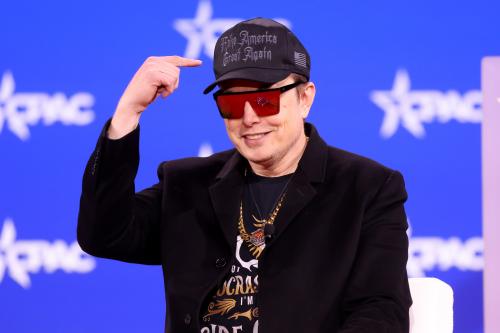— ISS has joined Glass Lewis in recommending SINOVAC Biotech’s shareholders vote to keep the company’s current board of directors.
The proposal came from SAIF Partners, SINOVAC’s largest single investor in close coordination with Advantech/Prime Success and Vivo Capital, who believe that the current board does not act in the interests of all shareholders.
They also believe the current board lacks integrity, industry experience, management expertise and respect for the law necessary to fulfill its promises to shareholders, according to the latest release from SAIF
Through the proposal SAIF aims to secure enough votes to reconstitute much of the company’s former board.
Speaking on ISS’ recommendation, the SINOVAC board said it was ‘thrilled’ that ISS and Glass Lewis recommended shareholders vote to keep the current board.
They added that ‘ISS and Glass Lewis both recognized the swift actions the current SINOVAC board has taken to restore fairness and deliver value to SINOVAC’s rightful shareholders’.
They also criticized the former board’s ‘abject governance failures that robbed value from SINOVAC shareholders during its seven-year ’de facto‘ tenure’.
— Activist investor firm Barington Capital Group has warned industrial technologies and memorialization company Matthews International to fix its business and add three of the firm’s director candidates to its board or face another confrontation with the group next year.
In a letter to Matthews International chairman Alvaro Garcia-Tunon, Barington pointed to the ‘continued failure of the board of directors and chief executive officer Joseph Bartolacci to create long-term value for shareholders’ as the reason for the warning.
Matthews’ stock price dropped 12 percent in the first six months of the year, when the broader S&P 500 index gained 4.4 percent and Matthews’ peers gained 3.3 percent on average.
The firm’s position was supported by proxy advisory firms ISS, Glass Lewis and Egan Jones who also criticized the Matthews board and management for its performance.
— AstroNova, a provider of data visualization technologies, on Monday June 30, confirmed the resignation of its president and chief executive officer, Gregory Woods.
The news comes following the launch of a proxy contest by AstroNova’s shareholder Askeladden Capital Management. Askeladden submitted a proposal to replace five of AstroNova's six board members up for election, arguing the current board has failed to deliver shareholder value.
Over the last 12 months, AstroNova’s total shareholder return fell by more than 50 percent, which has been attributed to governance failures and mismanagement.
Chief among these failures was the $18.6 mn acquisition of MTEX, a digital printing technology company. Within a year of the acquisition, AstroNova had written off $13.4 mn in value and discontinued 70 percent of MTEX's products.
With Wood’s departure, Darius Nevin, a member of the AstroNova board of directors, will act as the company's interim president and chief executive officer.
The company said it will initiate a search for a successor to Woods, who also resigned from AstroNova's board of directors.
— Lamb Weston has entered into a corporation agreement with activist investor JANA Partners, which will see the appointment of four new directors to Lamb Weston’s board.
JANA candidates include Bradley Alford, Ruth Kimmelshue, Timothy McLevish and Scott Ostfeld who will each assume their roles no later than July 11.
Charles Blixt, WG Jurgensen, Robert Niblock and Maria Renna Sharpe will be stepping down from the board.
In addition, Lawrence Kurzius and Paul Maass, who were mutually agreed upon by Lamb Weston, JANA and fellow shareholder Continental Grain, will also join the board.
The agreement marks the end of a roughly seven-month campaign by JANA, pushing management for operational and capital improvement and possibly even a sale.
— ASL Strategic Value Fund, a significant shareholder of Avadel Pharmaceuticals, has urged Avadel’s shareholders to vote against all of the company’s director nominees up for election.
With the company’s 2025 annual general meeting set for July 29, ASL has asked the board to pursue a ‘new course of action’ designed to maximize value for all of Avadel’s ‘long-suffering’ shareholders.
Specifically, ASL criticized Avadel’s ability to capitalize on its leading narcolepsy drug Lumryz and commented that ‘Avadel should have converted 40 to 50 percent of the existing sodium oxybate users to Lumryz’.
The ‘constant missteps’ and ‘constant miscommunication’, they said, has failed to create any value for the company’s shareholders.
— Earlier this week, EY advised audit committees to ensure management has robust processes to monitor tax developments and other regulatory changes, amid a changing public policy landscape in the US.
The advice comes from the firm’s EY Center for Board Matters, 2025 Q2 Audit committee update outlining key considerations for audit committees as they navigate the changing public policy landscape.
With possible changes in US trade policy under President Donald Trump’s administration, the report calls for advanced planning and advises companies to avoid reactive decision-making.
The report also advises boards and audit committees to be aware of how AI is being incorporated into business processes and products as well as how it impacts cybersecurity, data privacy and other risks.
Furthermore, internal audit teams should be encouraged to use dynamic risk assessments and focus on the most critical areas of risk. Also, companies should have adaptable crisis playbooks and regularly review escalation protocols as part of this planning.









